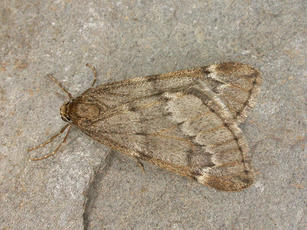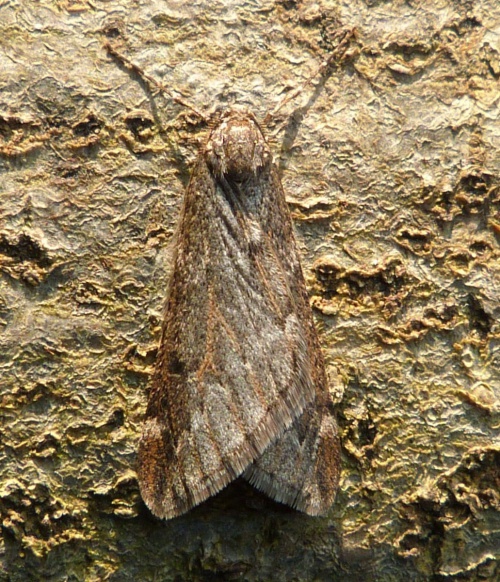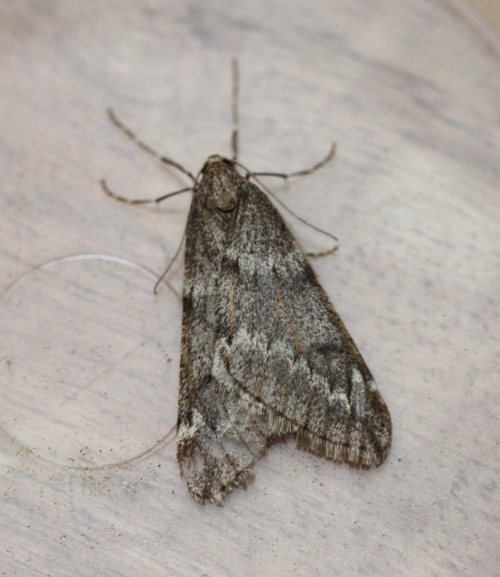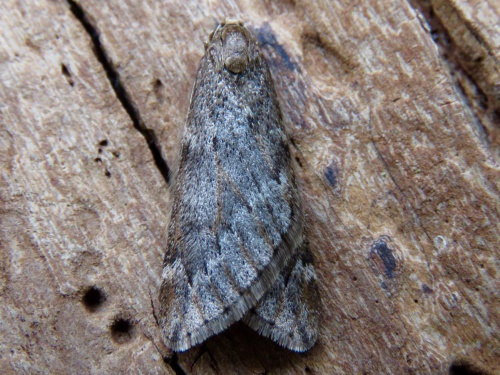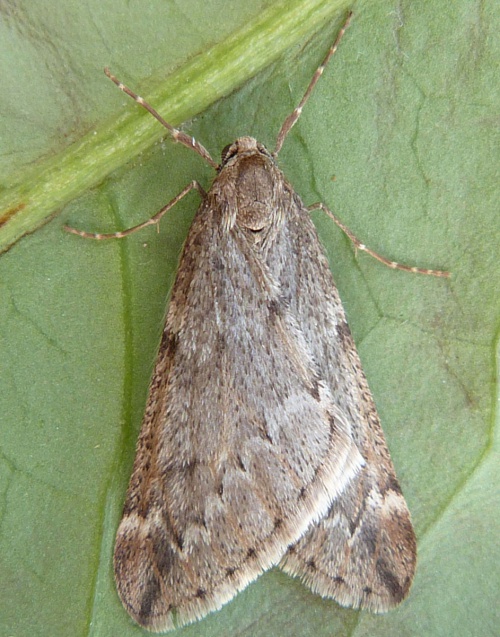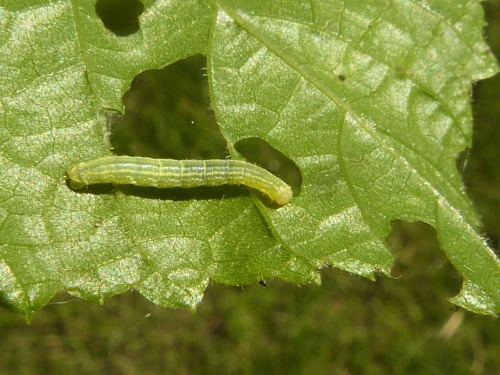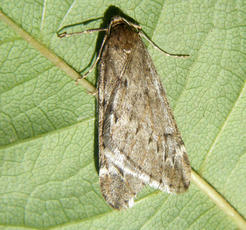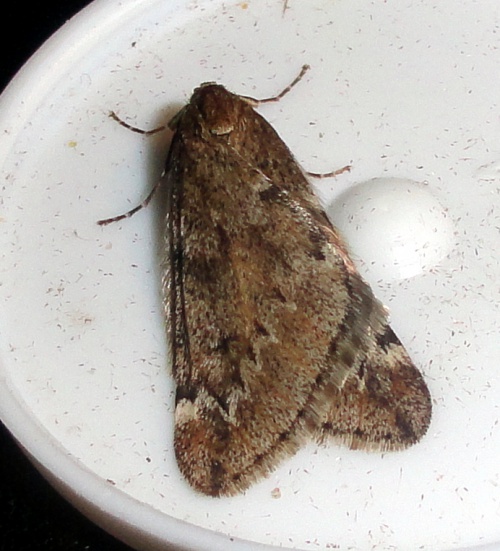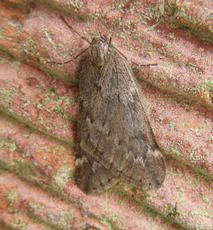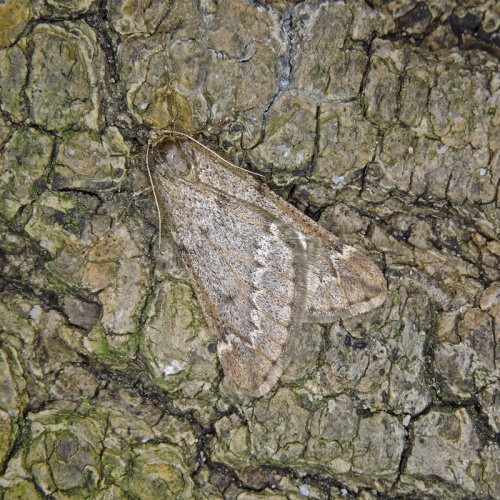March Moth - Alsophila aescularia
Wingspan 25-35 mm. This is one of a few species of moth where the female is apterous, or wingless. The male has a distinctive way of resting, with the wings overlapping.
The females may be found crawling on tree-trunks at night and the males can be attracted to light.
Occurring in March and April.
The pale green larvae feed on a range of deciduous trees, including Hawthorn, Oak and fruit trees.
It is fairly well distributed over most of Britain and reasonably common. In a recent survey to determine the status of all macro moths in Britain this species was classified as common.
Fairly common in Leicestershire and Rutland. L&R Moth Group status = A (common and resident)
Leicestershire & Rutland Map
Enter a town or village to see local records
MAP KEY:
Yellow squares = NBN records (all known data)
Coloured circles = NatureSpot records: 2025+ | 2020-2024 | pre-2020
UK Map
Species profile
- Common names
- March Moth
- Species group:
- Moths
- Kingdom:
- Animalia
- Order:
- Lepidoptera
- Family:
- Geometridae
- Records on NatureSpot:
- 135
- First record:
- 02/04/2002 (Adrian Russell)
- Last record:
- 20/03/2025 (Pugh, Dylan)
Total records by month
% of records within its species group
10km squares with records
The latest images and records displayed below include those awaiting verification checks so we cannot guarantee that every identification is correct. Once accepted, the record displays a green tick.
In the Latest Records section, click on the header to sort A-Z, and again to sort Z-A. Use the header boxes to filter the list.


